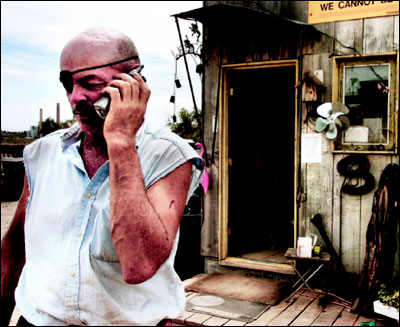 A wise man once said, “beer, the cause of and solution to all of life’s problems”. More recently, Center for Global Development (CGD) Senior Fellow, Charles Kenney published an article in Foreign Policy magazine called “Chug for Growth” discussing the role of beer and beer manufacturing in developing countries. Ever since the development profession (for lack of a better word) began, people have been trying to determine what defines development. And Kenney thinks he may have figured it out.
A wise man once said, “beer, the cause of and solution to all of life’s problems”. More recently, Center for Global Development (CGD) Senior Fellow, Charles Kenney published an article in Foreign Policy magazine called “Chug for Growth” discussing the role of beer and beer manufacturing in developing countries. Ever since the development profession (for lack of a better word) began, people have been trying to determine what defines development. And Kenney thinks he may have figured it out.
Interestingly, there have been many studies done and many more uninformed beliefs held that the poor spend all their money on and drink lots of alcohol. And while that (amount of money spent on alcohol relative to income) maybe true as Kenney sort of points out the amount drunk per capita is much higher in developed countries such as the United States than it is in African countries such as Zambia.
However, it turns out beer is also a major employer and engine for economic growth. Kenney sites the growth of such industries in Rwanda, Ethiopia and Juba, Sudan. And points to SABMiller in Juba, which invested more than $50 million dollars into their brewery in the Southern Sudanese city. As he notes, “SABMiller’s brewery will provide tax revenue, lease payments, more than 200 local jobs, and increased demand for local agricultural produce.” Meanwhile, East African Breweries in Kenya has over a $1 billion in market cap, so clearly the size of these breweries and the investments made mean that they can become the backbone of smaller, but growing economies.
Ironically, it was another CGD employee, Senior Fellow and Vice President for Programs, Todd Moss who in 2003 wrote, “Adventure Capitalism: Globalization and the Political Economy of Stock Markets in Africa”, where he basically argues that a country could not be considered on a path to development if they did not posses any sort of capital markets (in this case a stock market). Now this seems to hold a bit more empirical weight than that of the brewery argument, but interestingly they often go hand in hand. In fact, look at the history of the majority of African stock markets and you’ll find that breweries, if not the market’s first listing, are at least in the first five or ten businesses listed. And that does say something about economic growth.
So, while there are of course downsides to alcohol use, as Homer Simpson so astutely points out in my opening quote and Kenney’s article is written somewhat, tongue-in-cheek, the argument still seems to have merit. If the positives end up outweighing the negatives, this could be a huge boost for a place like Juba where a new country could use all the economic help it can get.
Image Credit by Yo Ghurt via Flickr under a CC license


